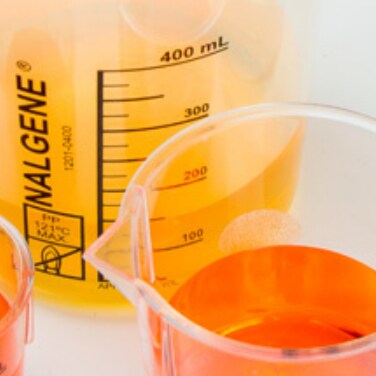Minimize Your Laboratory’s Environmental Impact
Laboratories make it possible for important research to take place, but they require a lot of energy to operate, significantly more than the average office building. Many scientists express concerns regarding environmental sustainability and waste challenges in the lab. From planning to discovery, learn how even the smallest choices you make as an innovator and laboratory professional can contribute to a better world.
Resource-Conscious Designs
Sustainability starts at the beginning. Seek products designed to minimize your use of and exposure to hazardous materials and buy from manufacturers who consider the entire life cycle of their lab supplies. Look for suppliers that provide data regarding their environmental claims through an ACT label or other sustainability-driven product marking.
Thermo Scientific products are part of a program run by the nonprofit My Green Lab (mygreenlab.org), an organization that provides an environmental assessment label for laboratory products. The ACT label emphasizes accountability (A), consistency (C), and transparency (T) around manufacturing, energy, water use, packaging, and end-of-life disposal.
The ACT label makes it easy to compare and select environmentally friendly products. It can inform your buying decisions or help you evaluate the impact of a product currently in use.
Consumables You Can Reuse
Plastic consumables are often the best choice for your lab, especially those you can reuse again and again. As is the case with many Thermo Scientific Nalgene products, by the time you’re ready to part with them, you may be able to recycle them. Many of our products are made from polypropylene and polyethylene, which are recyclable plastics.
The following products are made from high-quality, laboratory-grade plastic materials for dependably low leachables and extractables.
Nalgene Wide-Mouth HDPE Bottles
Choose Thermo Scientific Nalgene Wide-Mouth Lab Quality HDPE Bottles for countless field applications. These containers exhibit excellent chemical resistance to most acids, bases, and alcohols, and they are suitable for freezer use down to –100°C. They’re also leakproof when used with Nalgene closures.
Nalgene Polypropylene Graduated Cylinders
Conduct applications accurately with Thermo Scientific Nalgene Polypropylene Graduated Cylinders, which feature generous pour spouts, molded-in graduations, and a large, blue base. There is no meniscus to confuse readings, helping to eliminate guesswork. The cylinders can be chemically sterilized, and they’re suitable for food and beverage use.
Nalgene Polypropylene Beakers
Carry out precise and efficient pouring with Thermo Scientific Nalgene Polypropylene Griffin Low-Form Beakers. These beakers feature a single-spout design and easy-to-read, silk-screened graduations. Their rugged, reusable construction will last for years under typical laboratory conditions, and they meet ISO/DIN 7056 international standards for laboratory plasticware accuracy.
At Thermo Fisher Scientific, we’re fueling innovation to impact the world in the right ways.
To learn more about our environmental sustainability program, visit fishersci.com/sustainability.

